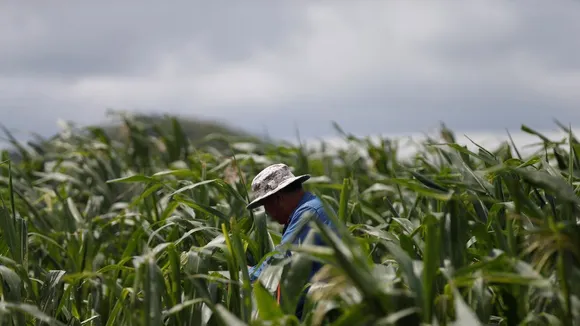
In a bold move that promises to reshape the landscape of agriculture in Thailand, the Bank for Agriculture and Agricultural Cooperatives (BAAC) has laid out a comprehensive strategy aimed at elevating the livelihoods of local farmers. With the introduction of an e-commerce platform integrated with blockchain technology, the initiative seeks to correct the longstanding imbalance in profit distribution between farmers and vendors, particularly noticeable in the realm of crop exports. This ambitious plan, unveiled by Thailand Trade Representative (TTR) Prof. Narumon Pinyosinwat, is part of the government’s broader vision titled “Market-Led, Innovation-Driven, Triple Farmers’ Income,” which aims not only to bolster farmers’ earnings but also to usher in an era of high-value agricultural practices and enhanced global connectivity.
Revolutionizing Agriculture through Technology
The cornerstone of BAAC’s strategy revolves around leveraging cutting-edge technology and innovation to propel Thai agriculture into the future. By integrating blockchain technology into an e-commerce platform, the initiative ensures transparency and fairness in trade, enabling farmers to receive a fair share of the profits. This digital transformation is complemented by efforts to boost productivity and promote sustainable agricultural practices among the farming community. Prof. Narumon Pinyosinwat highlighted the critical role of energy innovation, data infrastructure development, and the ‘Pirunraj’ application—a trading platform that facilitates direct transactions between farmers and consumers. This holistic approach not only aims to reduce operational costs but also to significantly increase production and income for farmers.
Adapting to Climate Change with Smart Agriculture
Another pressing issue confronting Thai agriculture is the impact of climate change, which has led to a decrease in water availability and prompted authorities to discourage off-season rice cultivation. In response, the BAAC’s plan encourages the cultivation of drought-tolerant crops such as tomatoes, sweet corn, and watermelons, as part of a broader effort to adapt agricultural practices to the evolving climate. This shift towards smart agriculture, underscored by the adoption of technology and innovative farming techniques, is seen as pivotal in mitigating the negative effects of climate change on the economy and ensuring the sustainability of the agricultural sector.
Embracing the Bio Circular Green Economy Model
The implementation of the Bio Circular Green (BCG) economy model stands as a testament to Thailand’s commitment to sustainable development. This model, which emphasizes bio, circular, and green principles, aims to harmonize economic growth with environmental preservation. Public-private partnerships play a crucial role in this endeavor, fostering collaboration between the government, the private sector, and farmers. The integration of the BCG model in capital projects and infrastructure, alongside case studies from ASEAN and Thailand, showcases the potential benefits and challenges of transitioning to sustainable agriculture practices and renewable energy projects. Through these concerted efforts, Thailand aspires to not only enhance the livelihoods of its farmers but also to establish a more resilient and sustainable agricultural sector.
In conclusion, Thailand’s strategic initiative to transform its agricultural sector through the integration of technology, innovation, and sustainable practices represents a significant leap forward in addressing the challenges faced by farmers. By enhancing productivity, ensuring fair trade, and adapting to climate change, the BAAC’s plan, under the guidance of Prof. Narumon Pinyosinwat and in collaboration with key stakeholders such as Huawei and the Ministry of Agriculture and Cooperatives (MOAC), sets a precedent for the future of agriculture in Thailand and beyond. This comprehensive approach not only aims to triple farmers’ income but also to secure the sector’s sustainability for generations to come, making it a beacon of hope and innovation in the global agricultural landscape.

